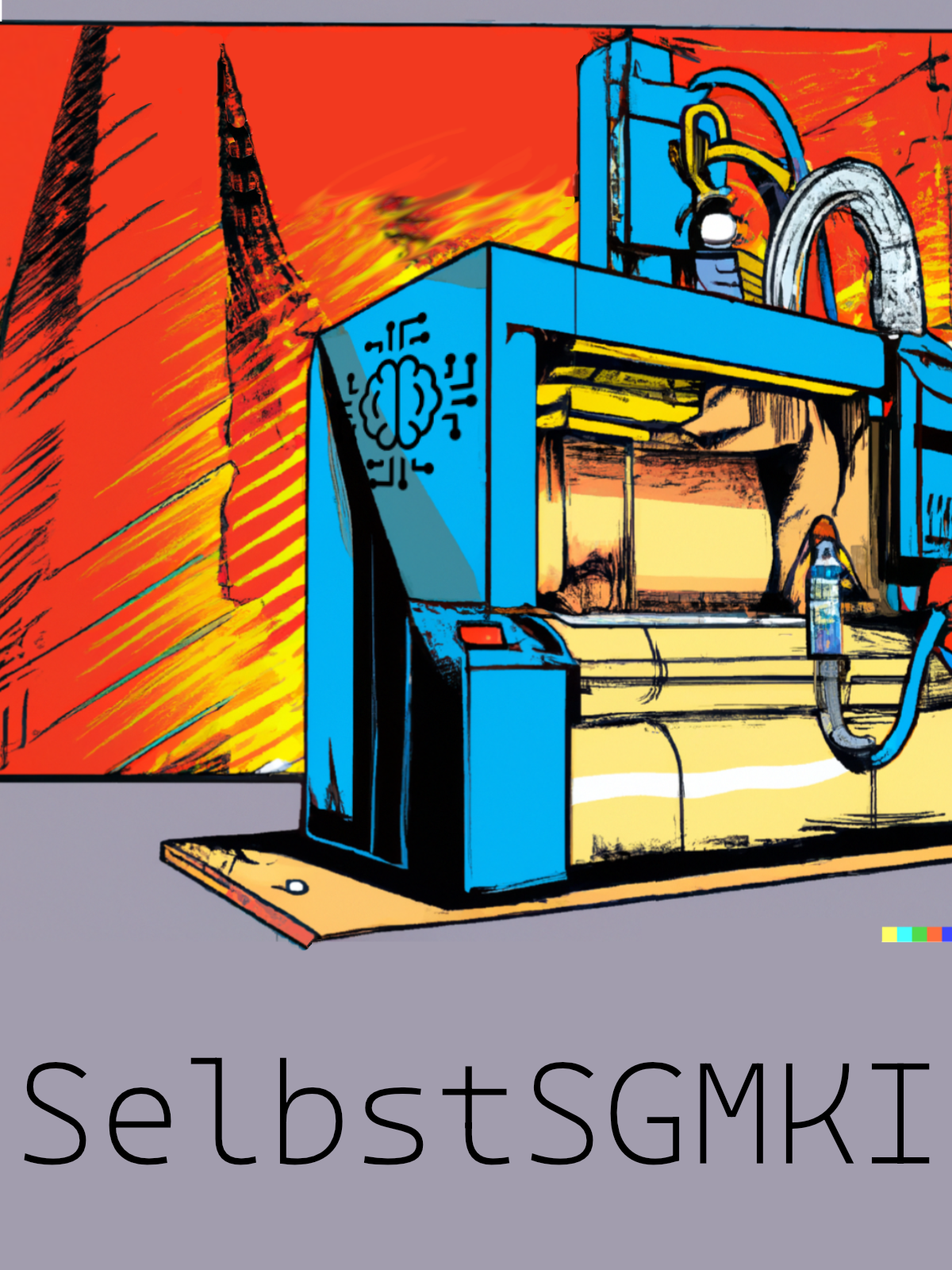SelfSGMKI: Self-starting injection moulding machine with AI-supported optimization phase involving the experience of the machine operators
In the SelbstSGMKI project, the know-how of the injection molding process is digitally recorded. The set-up operation, known as the filling study, is automated. In addition, data will be collected by recording process data and component qualities, which will be used to train AI models and thus optimize components.
Project background
Injection molding is the most important processing method for high-volume technical products made from polymer materials. Due to the complexity of the injection molding process, correlations between the qualities achieved are not obvious. As the final qualities (e.g. final dimensions due to shrinkage, mechanical properties) are only achieved after several hours or days, there is a risk that failure to achieve these qualities will be detected too late, resulting in a higher reject rate.
For example, the final dimensions according to standard DIN 16 742 are only checked in the period from 16 h to 72 h after production. The goal of the plastics industry is zero-defect production. This includes three aspects in particular:
- Minimizing waste when commissioning new tools and materials
- Rapid determination of an optimum operating point that offers process stability and optimum quality
- Active stabilization of the ongoing process with regard to environmental fluctuations and fluctuations in the raw materials (batch fluctuations)
The project aims to contribute to zero-defect production.
Project objective
The goals of the SelbstSGMKI project are fully automatic start-up control and component optimization using artificial intelligence.
A tool is required for each new component, which is set up by the machine operator using a filling study. This process is to be automated using a developed approach control system. This provides an initial starting point for optimizing the process.
This optimization is to be supported by artificial intelligence. The correlations between component qualities and process parameters are to be learned so that adjustments to the process parameters to achieve better component qualities are recognized and suggested.
Project procedure
In collaboration with Sumitomo Demag, process data is collected during set-up, production and optimization. Strategies for automating the set-up process are developed, tested on the injection molding machine and elaborated. For optimization using artificial intelligence, AI models are created and trained using collected data sets. Synthetic data sets are used for pre-training by means of a digital twin and real data sets are used to develop the models.
In the work, care is taken to ensure that as few changes as possible have to be made to the design of the injection molding machine so that simple retrofitting on existing machines can be guaranteed.
Innovation
The innovation of the project is the automation of the complex injection moulding process with regard to finding a stable process point as quickly as possible and the subsequent optimization with regard to desired component qualities using artificial intelligence.
A user interface is to be developed to evaluate the component qualities so that an evaluation by the operating personnel (e.g. sink marks and torches) and a subsequent evaluation of the data records, e.g. by quality assurance, can take place.
An associated measurement methodology is therefore not necessary to train the AI model, but can be used for this. The AI model should be able to be trained on measurable quality characteristics (e.g. component dimensions and weight) as well as subjectively assessable characteristics (e.g. surface defects and burr formation) and thus be able to optimize all of these quality factors.
Dissertations
Detektion der volumetrischen Füllung anhand von maschineninternen Daten der Spritzgussmaschine
| PhD student | M.Sc. Christian Bielenberg |
|---|---|
| Research focus | Produkte und Produktion |
| Duration | 2024-02-01 - 2028-01-31 |
| Scientific supervisors THRO | Prof. Dipl.-Ing. Peter Karlinger und Prof. Dipl.-Ing. Martin Würtele |
| Institutions |
Faculty of Engineering Sciences Centre for Research, Development and Transfer |
| Scientific supervisor (extern) | Technische Universität Dresden | Prof. Dr.-Ing. Markus Stommel |
Sub-project lead
T +49 (0) 8031 / 805 - 2631 peter.karlinger[at]th-rosenheim.de
ORCID iD: 0009-0002-8523-3630
Project staff
T +49 (0) 8031 / 805 - 2637 Christian.Bielenberg[at]th-rosenheim.de
Georg.Rottenwalter[at]th-rosenheim.de
T +49 (0) 8031 / 805 - 2681 Sabine.Hummel[at]th-rosenheim.de
External project collaboration
Sumitomo (SHI) Demag Plastics Machinery
VDI / VDE Innovation + Technik GmbH
Sumitomo (SHI) Demag Plastics Machinery
VDI / VDE Innovation + Technik GmbH


